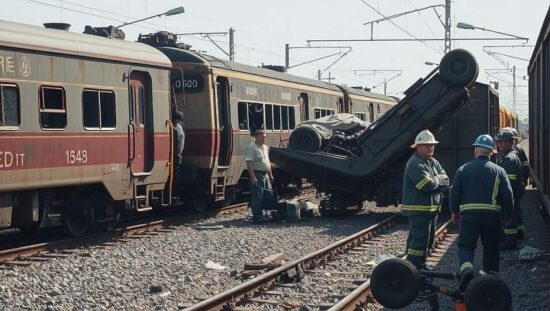Three and a half years after the devastating train derailment in Garmisch-Partenkirchen in June 2022, Deutsche Bahn (DB) is undertaking significant reforms, extending beyond the replacement of roughly two million concrete sleepers to address a deeply ingrained culture within its subsidiary, DB Infrago. The changes, detailed in a report obtained by the “Süddeutsche Zeitung”, reveal a systemic prioritization of punctuality over safety that contributed to the disaster.
Philipp Nagl, head of DB Infrago, acknowledged a problematic incentive structure where reducing the number of speed restrictions – measures vital for safety but detrimental to on-time performance – was actively rewarded. He stated, “There was a culture where it was rewarded if you established as few speed restrictions as possible”. This culture, he now insists, must be fundamentally altered, emphasizing that “the safety culture must be a matter for management.
The 340-page report, compiled by the law firm Gleiss Lutz following an internal investigation into potential legal violations and breaches of duty related to the derailment, paints a damning picture. The report allegedly details how a compensation system incentivized performance metrics linked directly to punctuality, fostering an environment where leaders exerted pressure on infrastructure managers to meet these targets, effectively prioritizing “punctuality goals instead of safety goals”. This pressure, the report indicates, led to a “considerable degree of intimidation” within the organization.
In a direct shift away from this model, Nagl has eliminated punctuality targets for infrastructure managers, replacing them solely with safety objectives. “Since the beginning of 2025, infrastructure managers have no punctuality targets, but primarily safety objectives” he confirmed, adding, “We are focusing on safety instead of punctuality.
The Gleiss Lutz report reportedly implicates twelve employees, ranging from operational staff to board members, for failing in their duties. DB has reportedly terminated the employment of some senior and executive leaders whose conduct was deemed unacceptable, particularly regarding safety-critical decision-making. As Nagl underscored, “Such leaders have no place with us.
To prevent a recurrence, Nagl has implemented a training and awareness program for infrastructure managers, explicitly instructing leadership to refrain from placing pressure on them. Updated guidelines now govern the assessment of defects in post-tensioned concrete sleepers. “It is an intensive and also unpleasant review” Nagl admitted, “but it is necessary to avoid repeating old mistakes”. The situation raises broader questions about the accountability structures within DB and the pervasive influence of performance targets on safety protocols across vital infrastructure networks.





